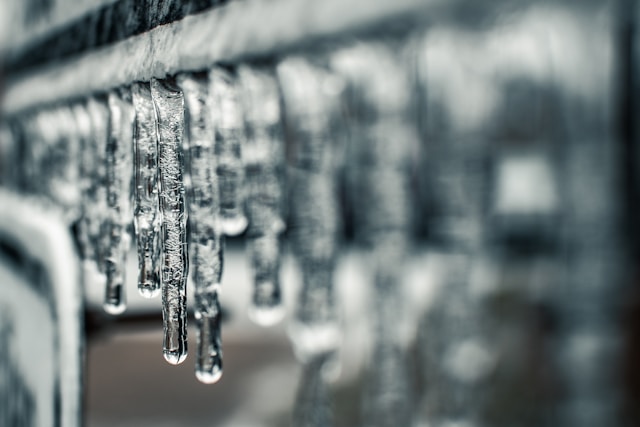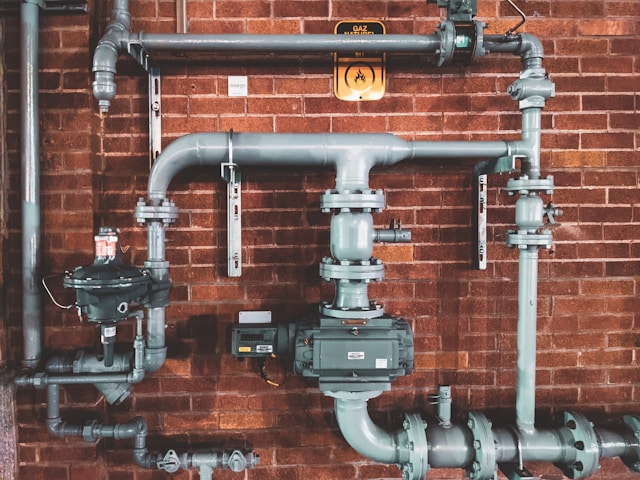Water damage is expensive, so the best course of action is to take preventive measures for a leak-free home. There are a few steps you should take with your plumbing system, including regular maintenance.
We’ll cover everything you need to know below. So, keep reading to learn more about plumbing maintenance techniques.
Table of Contents
1. Set Up a Plumbing Inspection Routine
One of the best things you can do for your plumbing system is to plan a regular inspection. That way, you can catch issues early before they cause costly water damage. It’s best to have a professional complete the inspection so you know no problems get missed.
In general, you want to have the system inspected by a pro once every two years. However, if your plumbing system is older, or runs into a lot of problems, a yearly inspection is best.
You also should remain aware of common signs of internal water damage. That way, if you see any of the signs, you can react quickly. Some signs you have a leak in your plumbing include:
- Water bills that jump in price suddenly.
- Visible mold around baseboards, fixtures, and walls. Especially in the kitchen or bathroom.
- The pipes are rusting.
- Rooms that smell like mold or mildew.
- Cracks appear in your foundation.
- The water meter is constantly running.
If you notice any of these signs, make sure to contact a professional plumber right away. They can figure out the issue immediately, so you don’t have to guess.
Overall, a routine inspection could save you thousands because you don’t have to worry about water damage.
2. Check and Clean Drains Often
Next, cleaning the drains helps prevent clogs. Clogs can quickly lead to leaks in sinks, bathtubs, and garbage disposals. When debris gets trapped in a pipe, it causes water to become trapped. Over time, the extra pressure in the pipes breaks caulking and seals, leading to leaks and mold.
You can use a mixture of vinegar and baking soda in the drains to help clear them. Start doing this each week until you know they’re clear. Then, you can do it less often for maintenance. You should avoid using chemical drain cleaners whenever possible because they can slowly erode your pipes.
3. Insulate Pipes in Cold Weather

Freezing weather can cause pipes to burst. Uninsulated pipes and ones in unheated areas are more likely to break. So, you’ll want to check any pipes you have in your basement or attic because these are most at risk.
Start by insulating any indoor pipes you have. It’s an easy process. All you need to do is buy the insulating material and wrap it around the pipes with tape. Insulation also stops condensation buildup on the outside of the pipe, preventing dripping.
Next, always shut off the water to outdoor pipes when it gets below freezing out. You should turn off water to sprinklers, hoses, and outside faucets. Drain these outside water sources and insulate them if possible.
Burst pipes can cause a lot of damage quickly. Here’s how to tell if your pipes are frozen:
- It’s below freezing outside.
- There’s no or very little water coming from your faucets.
- There’s visible frost on the faucets.
- The pipes are beginning to smell bad due to blocked water and other debris.
- The water meter is moving despite all fixtures being off.
When you notice a burst pipe, you need to react immediately. Start by turning off your water supply at the main valve. Move anything in the way of the water damage. Then, contact a professional plumber. The sooner they can help you, the less time the water has to cause havoc. Many plumbing companies offer 24-hour emergency services.
It’s also a good idea to reach out to your insurance company as soon as you can. They’ll help you get your home repaired.
4. Adjust the Water Pressure
It’s important to look over the water pressure on your plumbing system. You might have it set too high or low without realizing it. Your pipes can only withstand specific water pressures. Going above that for too long causes a lot of strain on the seals of the pipes. Over time, they’ll weaken and drip. They could even burst if the water pressure is high enough.
You can use a water pressure gauge to ensure it’s set correctly. It’s generally recommended to keep the settings between 40 and 60 psi. If you go too much higher than that, you could cause a burst pipe or leaks.
A plumber could install a pressure regulator to lower the psi in the pipes. It’s best to let them handle it when you’re not sure what you’re doing. Hiring a professional plumber is always an option for homeowners. However, you can also lower the psi on your own at the water main if you’re confident.
5. Don’t Forget the Hot Water Heater

Your hot water is essential to daily functioning in your home. If it leaks, it could cause a lot of problems. You should check it every so often. Most homeowners check them every other month to ensure they catch problems early enough.
Start with a quick visual check. Inspect the heater for pools of water around the base, which would mean it’s leaking. There might also be dripping pipes around the heater. Make sure the tank’s set to the right temperature and that the pressure relief valve works.
It’s also good to flush the water heater when you perform these checkups. Doing so prevents buildup and keeps the heater in better condition for much longer.
Lastly, make sure you inspect the anode rod. This component attracts corrosive materials in the water. So, it corrodes instead of the inside of the water heater. If it’s heavily corroded, it will need to be replaced before the inside of the tank rusts.
Maintenance Now Prevents Leaks Later
In short, taking a few moments to maintain your plumbing now will save your home in the future. You can easily implement these techniques. Or, you can have a plumbing expert do it for you. Keeping your plumbing in good condition will save you from water damage later, so it’s worth your time.




